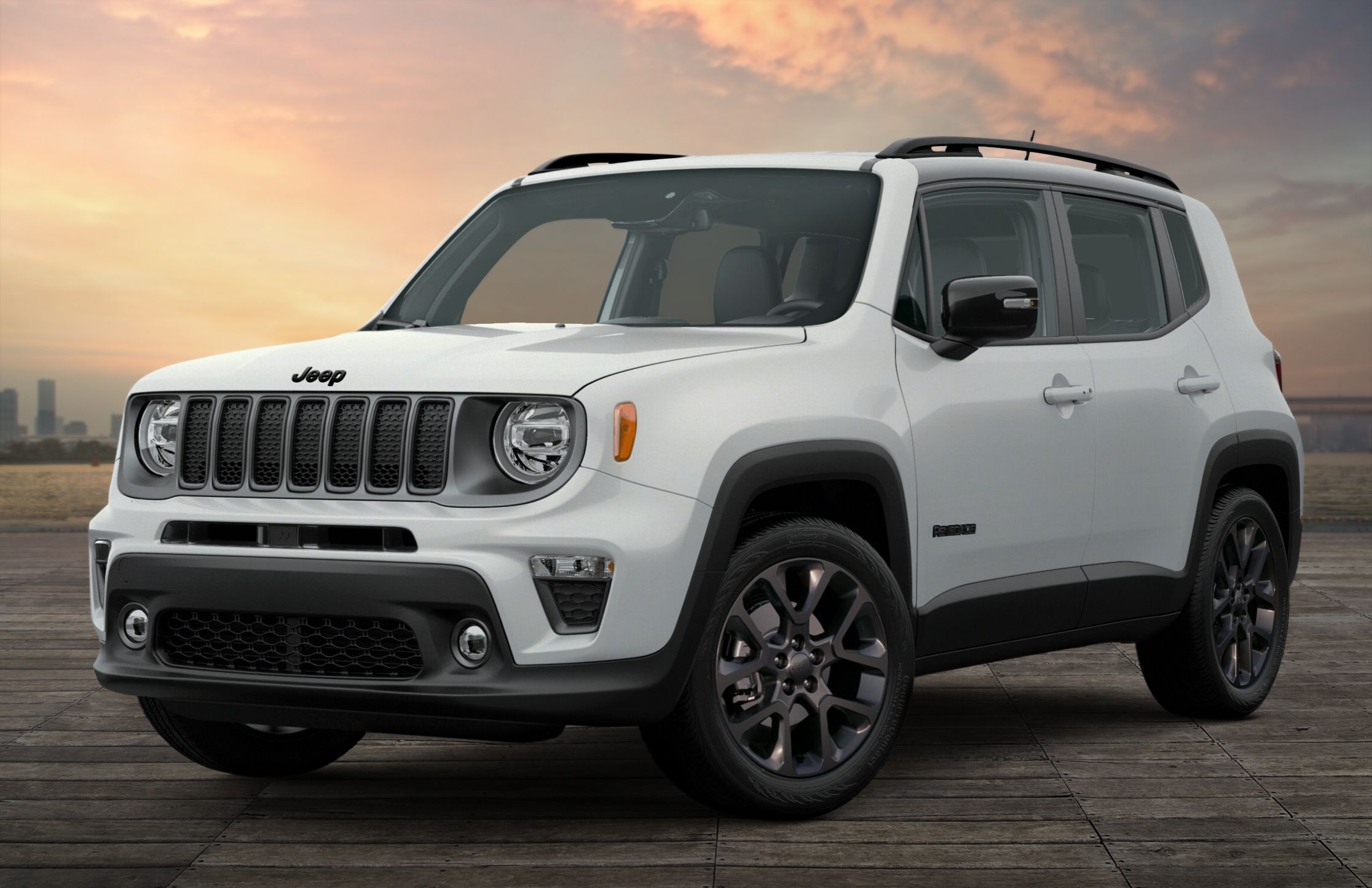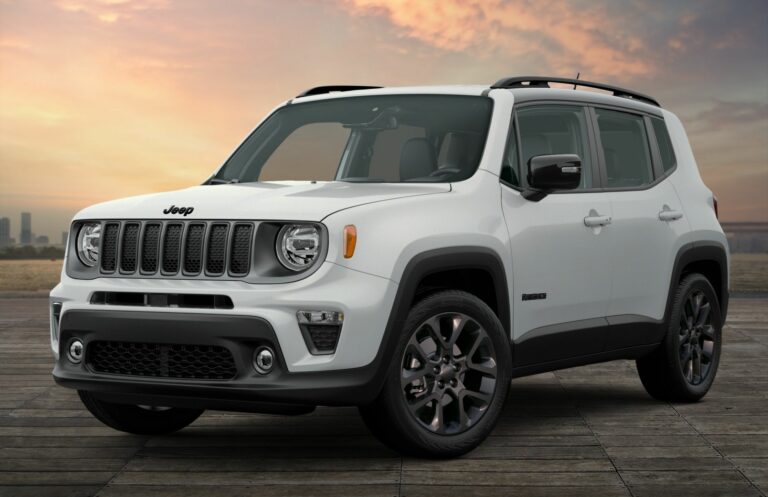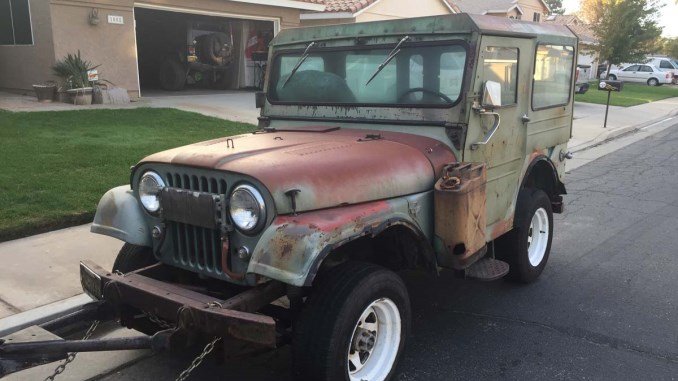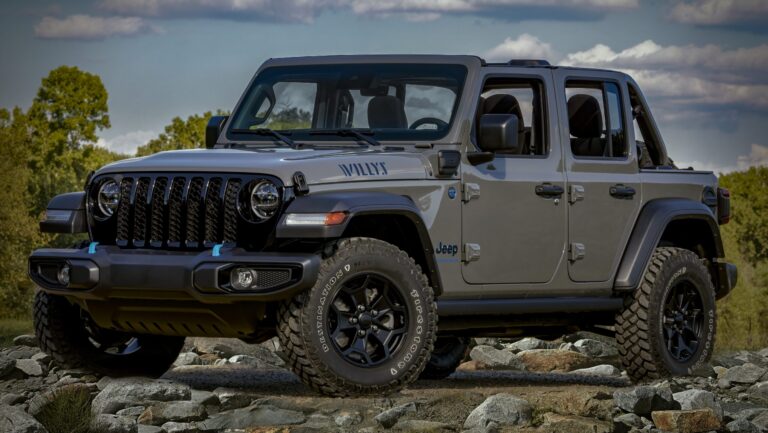Jeep Cherokee 2000 Engine For Sale: Reviving an American Icon
Jeep Cherokee 2000 Engine For Sale: Reviving an American Icon jeeps.truckstrend.com
The Jeep Cherokee XJ, particularly the 2000 model year, holds a special place in the hearts of automotive enthusiasts. Known for its rugged reliability, legendary off-road capability, and a surprisingly comfortable on-road demeanor, the XJ is a true American icon. At the core of its enduring appeal is the venerable 4.0-liter inline-six (I6) engine. When an XJ’s engine finally gives up the ghost after hundreds of thousands of miles, the question isn’t always about scrapping the vehicle, but rather about finding a "Jeep Cherokee 2000 Engine For Sale" to breathe new life into a cherished classic.
This comprehensive guide will delve into everything you need to know about sourcing, evaluating, and ultimately acquiring a replacement engine for your 2000 Jeep Cherokee. Whether you’re a seasoned mechanic or a passionate owner looking to extend your XJ’s lifespan, understanding the nuances of this critical purchase is paramount. We’ll explore the types of engines available, where to find them, crucial considerations before buying, and practical advice to ensure a successful engine swap, keeping your beloved Cherokee roaring for years to come.
Jeep Cherokee 2000 Engine For Sale: Reviving an American Icon
Understanding the Heart of the Beast: The 4.0L I6 Engine
The 4.0-liter High Output (HO) inline-six engine, which powers the 2000 Jeep Cherokee, is arguably one of the most celebrated and robust engines ever produced by Chrysler/AMC. Introduced in the late 1980s, this engine quickly earned a reputation for its bulletproof reliability, ample low-end torque, and remarkable longevity. In its 2000 iteration, it typically produced around 190 horsepower and 225 lb-ft of torque, figures that still hold up well for a compact SUV.
Its enduring popularity stems from several factors:
- Simplicity and Durability: The inline-six design is inherently balanced and less complex than many V-configurations, contributing to its robustness.
- Torque Delivery: Its long stroke design provides excellent torque at lower RPMs, ideal for off-roading and daily driving.
- Ease of Maintenance: Parts are widely available and relatively inexpensive, and the engine is known for being straightforward to work on.

Despite its legendary status, even the mighty 4.0L I6 eventually succumbs to the ravages of time, mileage, or neglect. Common issues that might lead an owner to seek a replacement include:
- Cracked Cylinder Head (0331 Head): A notorious issue, particularly with 2000-2001 models, where the cylinder head develops cracks, leading to coolant loss and overheating.
- Excessive Oil Consumption/Leaks: Worn piston rings, valve seals, or various gasket failures can lead to significant oil loss.
- Low Compression: Indicative of internal wear, such as worn piston rings or damaged valves.
- Catastrophic Failure: Rod knock, spun bearings, or severe overheating can render the engine irreparable.
- High Mileage Wear: After 200,000+ miles, general wear and tear on components like the camshaft, lifters, and bearings can significantly diminish performance and reliability.

When faced with these issues, many XJ owners opt for an engine replacement rather than parting with their vehicle, especially given the rising value and classic status of well-maintained Cherokees.
Why Replace Your 2000 Jeep Cherokee Engine?
![]()
The decision to replace an engine is significant, often involving substantial cost and effort. However, for a 2000 Jeep Cherokee, it often makes compelling sense:
- Cost-Effectiveness: For many, a complete engine replacement is significantly cheaper than buying a new or even a newer used vehicle, especially when considering the depreciation hit of a new car. The initial investment in an engine can save tens of thousands in the long run.
- Preserving a Classic: The XJ Cherokee has achieved cult status. Many owners have deep emotional attachments, or have invested heavily in suspension, drivetrain, or aesthetic upgrades. An engine swap allows them to keep their customized or beloved vehicle.
- Known Quantity: You know the history of your chassis, its quirks, and its capabilities. Swapping the engine means you’re not inheriting new problems from an unknown vehicle.
- Simplicity of Swap: Compared to many modern vehicles, the 4.0L I6 engine swap in an XJ is relatively straightforward for experienced mechanics or DIY enthusiasts, thanks to its accessible design.
- Environmental Responsibility: Extending the life of a vehicle through repair reduces waste and the demand for new car manufacturing, making it a more sustainable choice.
Types of Jeep Cherokee 2000 Engines Available for Sale
When searching for a "Jeep Cherokee 2000 Engine For Sale," you’ll primarily encounter three main categories, each with its own set of pros, cons, and price points:
1. Used (Salvage/Junk Yard) Engines
- Description: These are engines pulled from donor vehicles, typically salvaged Cherokees that have been in accidents or are being parted out for other reasons. Their condition varies widely based on the donor vehicle’s mileage, maintenance history, and the reason for its demise.
- Pros:
- Lowest Cost: Generally the cheapest option available.
- Quick Availability: Often readily available at local salvage yards.
- Cons:
- Unknown History: The biggest gamble. You rarely know the true mileage, maintenance history, or reason the donor vehicle was junked.
- No/Limited Warranty: Warranties are often non-existent or very short (e.g., 30-90 days), covering only basic functionality, not longevity.
- Potential for Hidden Issues: May have internal wear, cracked heads (if from a 2000-2001 XJ), or other problems not immediately apparent.
- Tips for Buying: Always try to get proof of mileage, ask about the donor vehicle’s condition, and ideally, perform a compression test if possible. Visually inspect for significant oil leaks, damaged sensors, or signs of neglect.
2. Remanufactured/Rebuilt Engines
- Description: These engines have been professionally disassembled, inspected, cleaned, and reassembled with new or reconditioned components. Key wear parts like pistons, piston rings, bearings, gaskets, and seals are replaced. Cylinder heads are typically re-machined or replaced with improved castings (often addressing the 0331 crack issue).
- Pros:
- Improved Reliability: Significantly more reliable than used engines due to new internal components and professional refurbishment.
- Warranty: Most reputable remanufacturers offer a substantial warranty (e.g., 1-3 years, unlimited mileage).
- Known Quality: You’re getting an engine that has met specific quality standards.
- Addresses Common Flaws: Many remanufacturers use updated cylinder heads to prevent the notorious 0331 crack.
- Cons:
- Higher Cost: More expensive than used engines, but a worthwhile investment for peace of mind.
- Core Charge: Often requires a "core charge" which is refunded when you return your old engine.
- What to Look For: Choose a reputable remanufacturer with a strong warranty and positive customer reviews. Inquire about the specifics of their rebuild process and what parts are replaced.
3. New Crate Engines
- Description: While rare for a 2000 model year, some specialized aftermarket companies or performance builders might offer "new" 4.0L I6 crate engines. These are typically brand-new assemblies, often with performance enhancements or built to specific standards.
- Pros:
- Highest Quality: Brand new components, no wear and tear.
- Full Warranty: Typically comes with a comprehensive manufacturer warranty.
- Peak Performance: Ensures optimal power and efficiency.
- Cons:
- Most Expensive: Significantly pricier than remanufactured or used options.
- Rarity: Very difficult to find a truly "new" production engine for a 2000 model. Most will be highly specialized builds.
Where to Find a Jeep Cherokee 2000 Engine for Sale
Sourcing your replacement engine requires knowing where to look:
- Online Marketplaces:
- eBay Motors: A vast selection of used and remanufactured engines from various sellers. Pay close attention to seller ratings and warranty information.
- Facebook Marketplace/Groups: Local listings for used engines, often from private sellers or smaller shops. Great for finding local deals, but exercise caution. Look for Jeep Cherokee XJ enthusiast groups.
- Dedicated Auto Parts Websites: Sites like LKQ Online, Car-Part.com, or specific engine supplier websites (e.g., ATK Engines, Fraser Engines, Powertrain Products) specialize in used and remanufactured units.
- Local Salvage Yards/Auto Recyclers: Physically visiting yards allows you to inspect engines firsthand and potentially negotiate prices. Call ahead to check inventory.
- Specialized Engine Re-builders: Many companies focus solely on rebuilding specific engines, like the Jeep 4.0L. They often offer higher quality remanufactured units with better warranties. A quick online search for "Jeep 4.0L engine rebuilders" will yield results.
- Local Mechanics/Garages: Your trusted local shop might have connections to suppliers or be able to source an engine for you.
Important Considerations Before Buying
Before you hand over your hard-earned cash, consider these critical factors:
- Budget: Clearly define your budget. Remember to factor in not just the engine cost, but also shipping, potential core charges, and installation labor (if not DIY).
- Warranty: This is paramount, especially for used or remanufactured engines. Understand what the warranty covers (parts only, labor, specific components), its duration, and the claims process.
- Compatibility: While the 4.0L HO engine is largely consistent, confirm that the engine is specifically for a 2000 model year. Slight variations in sensor locations or accessory mounting points can occur between earlier and later HO models.
- Mileage and Condition (for Used Engines): For used engines, always ask for the mileage of the donor vehicle and any available history. Look for signs of proper maintenance (clean oil, no excessive sludge).
- Shipping Costs and Logistics: Engines are heavy and bulky. Shipping can be expensive, especially across long distances. Confirm shipping methods, costs, and estimated delivery times.
- Ancillary Parts: What’s included with the engine? Sometimes only the long block (block, head, oil pan, valve cover) is included, meaning you’ll need to transfer your intake/exhaust manifolds, fuel injectors, sensors, alternator, power steering pump, and A/C compressor. Factor in the cost of new gaskets and seals for these transferred components.
- Labor Costs (Professional Installation): If you’re not doing the swap yourself, get quotes from reputable shops. Engine swaps can be labor-intensive.
The Installation Process: DIY vs. Professional
Swapping an engine is a significant undertaking.
- DIY: If you have the necessary tools (engine hoist, stand, socket sets, torque wrenches), mechanical experience, and a dedicated workspace, a DIY swap is feasible. There are numerous online guides, forums, and YouTube videos dedicated to the XJ 4.0L swap. It’s a rewarding experience but demands patience and attention to detail.
- Professional: For most, hiring a qualified mechanic is the safest and most efficient option. They have the right tools, expertise, and can typically complete the job faster and with less risk of error. Always get a detailed quote that includes parts, labor, and any necessary fluids.
Regardless of who performs the swap, it’s highly recommended to replace key ancillary components during the process:
- Water Pump & Thermostat: Inexpensive and easy to replace while the engine is out.
- Belts & Hoses: Preventative maintenance.
- Motor Mounts: Old ones are likely worn and can cause vibrations.
- Spark Plugs, Wires, Cap & Rotor: Basic tune-up items.
- Oil Pressure Sender, Coolant Temperature Sensor: Common failure points.
- Flywheel/Flexplate bolts: Replace with new, high-grade bolts.
- All Fluids: New engine oil, coolant, transmission fluid (if applicable), and power steering fluid.
Price Table: Jeep Cherokee 2000 4.0L Engine for Sale
Please note that prices are estimates and can vary significantly based on location, seller, market demand, and specific condition. Always verify current pricing.
| Engine Type | Condition | Estimated Price Range (Engine Only) | Typical Warranty | Pros | Cons |
|---|---|---|---|---|---|
| Used | High Mileage / Pulled | $600 – $1,500 | 30-90 Days (Parts Only) | Cheapest upfront cost | Unknown history, high risk of issues, short warranty |
| Remanufactured | Rebuilt / Refurbished | $1,800 – $3,500 | 1-3 Years (Parts & Labor often) | Reliable, addressed common flaws, good warranty | Higher cost, often core charge required |
| New Crate | Brand New / Aftermarket | $4,000 – $6,000+ | 3+ Years (Comprehensive) | Highest quality, peak performance, full warranty | Very rare for this model, highest cost |
Note: These prices generally refer to the long block. Additional costs for shipping, core charges, and ancillary components will apply.
Frequently Asked Questions (FAQ)
Q1: Is the 2000 Jeep Cherokee 4.0L engine truly reliable?
A1: Yes, the 4.0L I6 is renowned for its reliability and longevity, often lasting well over 200,000 miles. However, the 2000-2001 models are known for a specific issue with the 0331 cylinder head cracking, which can lead to overheating and coolant consumption. When buying a replacement, especially remanufactured, ensure this issue has been addressed.
Q2: What’s the main difference between a used and a remanufactured engine?
A2: A used engine is simply pulled from another vehicle, with its condition largely unknown. A remanufactured engine has been professionally disassembled, inspected, and rebuilt with new wear parts (pistons, rings, bearings, seals) and often re-machined or new cylinder heads, offering much greater reliability and a warranty.
Q3: How much does it typically cost to have a professional install a Jeep Cherokee engine?
A3: Installation costs can vary widely by region and shop, but generally range from $1,000 to $2,500 in labor alone. This doesn’t include the cost of the engine itself or any additional parts like fluids, hoses, or belts that are replaced during the swap.
Q4: What should I look for when inspecting a used 4.0L engine before buying?
A4: Look for signs of excessive sludge under the oil cap, which indicates poor maintenance. Check for external oil leaks or cracks on the block or cylinder head. Ideally, perform a compression test. Ask about the donor vehicle’s mileage and the reason it was salvaged.
Q5: Are all 4.0L engines interchangeable across different Cherokee years?
A5: While the basic block is similar, there are differences. The 2000 model uses the "High Output" (HO) engine with specific sensor locations and accessory mounts. Earlier Renix (pre-1991) and some later HO versions might have minor differences in components like the intake manifold, fuel rail, and sensors. It’s always best to source an engine from the exact same year or a direct cross-reference specified by the seller.
Q6: What other parts should I replace when doing an engine swap?
A6: It’s highly recommended to replace the water pump, thermostat, all hoses and belts, spark plugs, motor mounts, and potentially the clutch (manual transmission) or inspect the torque converter (automatic) while the engine is out. This preventative maintenance saves labor costs down the line.
Conclusion
The quest for a "Jeep Cherokee 2000 Engine For Sale" is more than just a transaction; it’s a commitment to preserving a piece of automotive history. The 4.0L inline-six, despite its age, remains a powerhouse capable of many more miles when properly cared for. By understanding the different types of engines available, knowing where to source them, and carefully considering the crucial factors before purchase, you can make an informed decision that breathes new life into your cherished XJ.
Whether you choose a budget-friendly used engine, a reliable remanufactured unit, or a rare new crate engine, the effort will be rewarded with the distinct pleasure of driving one of the most capable and iconic SUVs ever built. Your 2000 Jeep Cherokee, with its revitalized heart, will continue to conquer trails, commute reliably, and turn heads for years to come, proving that some legends truly never die.




